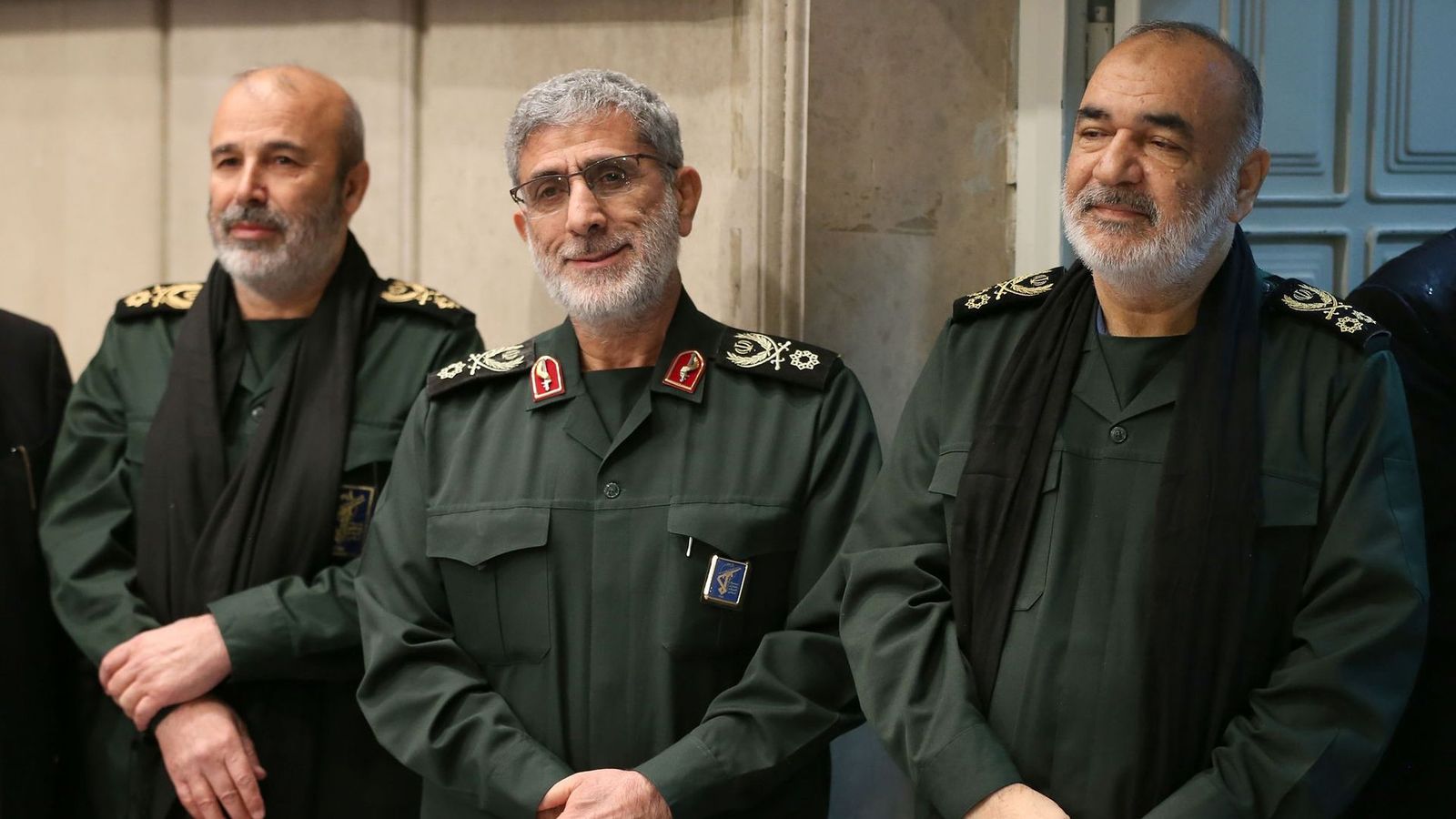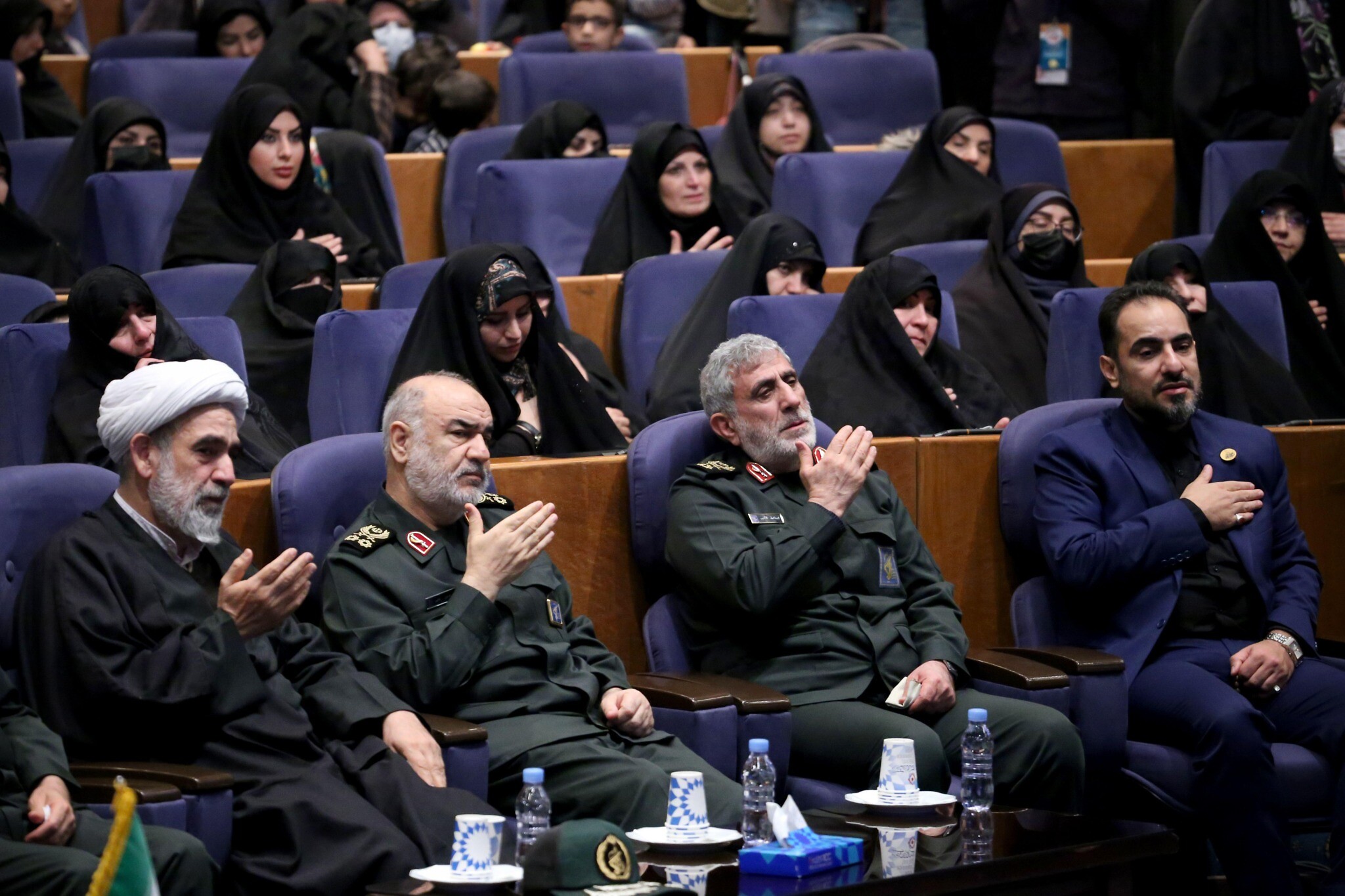Decoding The IRGC: Iran's Dominant Revolutionary Force
The Islamic Revolutionary Guard Corps (IRGC) is far more than just a military branch; it is a foundational pillar of the Islamic Republic of Iran, deeply interwoven into the nation's political, economic, and security fabric. Established in the tumultuous aftermath of the 1979 Iranian Revolution, the IRGC was envisioned by Ayatollah Ruhollah Khomeini as a dedicated force to safeguard the newly formed Islamic regime against both internal dissent and external threats. Unlike a conventional army, its primary allegiance lies directly with the Supreme Leader, giving it unparalleled influence and power within Iran. This article delves into the origins, structure, multifaceted roles, and international implications of the IRGC, often described as "the parallel state" or "the deep state" due to its pervasive reach.
Understanding the IRGC is crucial for comprehending modern Iran. It is not merely a military entity but a complex organization that has shaped, and continues to shape, Iran's domestic policies, regional ambitions, and international relations. Its unique position, answering directly to the Supreme Leader and operating independently of the regular army, underscores its critical role in ensuring the survival and strengthening of the Islamic Republic.
Table of Contents
- The Birth of a Revolution's Guardian: Origins and Mandate
- Anatomy of Power: Structure and Branches of the IRGC
- The IRGC's Strategic Reach: Ballistic Missiles and Regional Projection
- Beyond the Battlefield: The IRGC's Economic and Political Clout
- International Scrutiny: Sanctions and Global Implications
- Human Rights and Covert Operations: The Darker Side of the IRGC
- Leadership and Succession: Navigating a Complex Landscape
- The IRGC's Enduring Legacy and Future Trajectory
The Birth of a Revolution's Guardian: Origins and Mandate
The story of the Islamic Revolutionary Guard Corps (IRGC) begins in the immediate aftermath of the pivotal 1979 Iranian Revolution. With the collapse of the Shah's regime and the return of Ayatollah Ruhollah Khomeini, a new political order needed a dedicated force to secure its foundations. It was officially established by Ruhollah Khomeini as a military branch in May 1979, designed to be distinct from the existing regular army. While the conventional army was seen as potentially tainted by its association with the previous monarchical rule, the IRGC was created with an explicit ideological mandate: to safeguard the Islamic Republic.
This fundamental distinction is critical. The IRGC was founded with the primary aim of protecting the Islamic regime itself, countering internal dissent, and fending off external threats, thereby ensuring the survival of the newly formed Islamic Republic. Ayatollah Khomeini ordered its establishment specifically to maintain and strengthen the regime, as opposed to merely defending the geographical borders of the country. This unique purpose has shaped the IRGC's operational philosophy and its deep integration into the very fabric of Iran's political and social control mechanisms. It functions as a second military that answers directly to the fundamentalist mullahs who rule Iran, establishing a parallel power structure that reinforces the clerical establishment's authority.
Anatomy of Power: Structure and Branches of the IRGC
Over the decades, the Islamic Revolutionary Guard Corps (IRGC) has evolved from a nascent revolutionary force into Iran’s dominant military power, possessing a comprehensive and sophisticated structure. It operates independently of Iran’s regular army, known as Artesh, and has developed its own formidable capabilities across various domains. The IRGC is composed of ground, naval, and air forces, mirroring the conventional military but with distinct command structures and objectives.
Beyond its conventional military branches, the IRGC also incorporates an internal security militia known as the Basij. This volunteer paramilitary force extends the IRGC's reach deep into Iranian society, serving as a vital instrument for internal security, social control, and ideological mobilization. The Basij plays a crucial role in suppressing dissent, enforcing Islamic codes, and providing manpower for various social and military initiatives. Furthermore, the IRGC has its own robust intelligence apparatus, which complements its military and internal security functions, allowing it to monitor threats both domestically and internationally. This comprehensive structure, encompassing conventional military might, internal security, and intelligence, solidifies the IRGC's position as a multifaceted and indispensable pillar of the Iranian state, often referred to by its alternative names, Pasdaran or Sepah, reflecting its deep roots in the revolutionary ethos.
- Cody Garbrandt Girlfriend
- What Continent Is Iran In
- Taylor Goldsmith Age
- Iran And Us News
- Sharif University Of Technology Iran
The IRGC's Strategic Reach: Ballistic Missiles and Regional Projection
A cornerstone of the Islamic Revolutionary Guard Corps' (IRGC) power projection and a significant source of international concern is its oversight of Iran’s ballistic missile programme. This program is regarded by experts as the largest in the Middle East, representing a formidable strategic asset for Tehran. The development and deployment of these missiles fall squarely under the IRGC's purview, granting it a critical role in Iran's defense and deterrence strategies.
The IRGC has not shied away from demonstrating its missile capabilities. It has used missiles to strike militants in Syria, targeting groups perceived as threats to Iranian interests or its regional allies. Similarly, the IRGC has launched missiles against Kurdish opposition targets in northern Iraq, showcasing its willingness to project power beyond Iran's borders. More recently, during the latest conflict with Israel, the IRGC has launched salvos of missiles at Israel, underscoring its readiness to engage in direct military action in response to perceived aggressions or to assert its regional influence. This proactive use of ballistic missiles highlights the IRGC's dual role: not only as a guardian of the Islamic Republic but also as a key instrument of Iran's foreign policy and regional power dynamics, capable of delivering long-range strikes and influencing geopolitical events.
Beyond the Battlefield: The IRGC's Economic and Political Clout
The influence of the Islamic Revolutionary Guard Corps (IRGC) extends far beyond its military and security functions, permeating Iran's economic and political landscapes to an astonishing degree. It has been aptly called “the parallel state,” “the deep state,” and “the state with guns,” all of which are indicators of its strong influence and power in Iran’s politics and economy. This pervasive reach means that the IRGC is not merely a defense force but a powerful actor in almost every aspect of Iranian life.
Following the Iran-Iraq War, the Iranian leadership provided the IRGC new outlets of service, recognizing its crucial role and seeking to integrate its demobilized forces into the national fabric. This led to the IRGC establishing vast economic interests, particularly in construction, energy, and telecommunications, often through front companies and foundations. This economic empire provides the IRGC with significant financial independence and a powerful leverage point within the country. Politically, its direct allegiance to the Supreme Leader and its deep ideological commitment give it immense sway over policy-making, appointments, and national strategy. Proposals, external to the Basij, to demobilize or merge some of its elements into the IRGC under the name of a "resistance guard" after the war illustrate the ongoing debate about its role, yet its influence only continued to grow, solidifying its position as an indispensable and deeply entrenched institution in the Islamic Republic.
International Scrutiny: Sanctions and Global Implications
The multifaceted activities of the Islamic Revolutionary Guard Corps (IRGC) have made it a primary focus of international sanctions, particularly from the United States and its allies. The central role it plays in various forms of Iran’s illicit conduct, including its nuclear program, human rights abuses, and support for regional proxy groups, has led to extensive punitive measures. These sanctions aim to curtail the IRGC's financial resources and operational capabilities, thereby limiting its ability to destabilize the Middle East and pursue activities deemed contrary to international norms.
Since 2007, the U.S. Department of the Treasury has specifically targeted the IRGC for its connections to Iran’s human rights abuses, its backing of Iran’s ballistic missile and nuclear programs, and its support for designated terrorist organizations like Hezbollah and Hamas. While United Nations and European Union sanctions targeting Iran's military and missile programs remained in place until specific dates (e.g., 2020 and 2023, respectively, as per the provided data), the broader international pressure and U.S. sanctions continue to target firms and individuals involved in these programs, including entities directly connected to the Islamic Revolutionary Guard Corps. This sustained international pressure underscores the global concern over the IRGC's role in proliferation and regional instability.
The Nuclear Dimension and Proliferation Concerns
The IRGC's deep involvement in Iran's nuclear program is a major source of international alarm. While Iran consistently asserts the peaceful nature of its nuclear ambitions, the IRGC's oversight of sensitive aspects of the program, coupled with its history of covert activities, fuels suspicions about potential military dimensions. The IRGC's control over key research, development, and operational sites related to nuclear technology raises significant proliferation concerns. International sanctions specifically target entities and individuals within the IRGC who are deemed responsible for advancing the nuclear program, aiming to disrupt its progress and prevent the acquisition of nuclear weapons. The very presence of the IRGC at the helm of such a sensitive program complicates diplomatic efforts and intensifies global scrutiny on Iran's nuclear activities.
Supporting Proxies: Hezbollah and Hamas
A critical component of the IRGC's regional strategy is its extensive support for various proxy groups, most notably Hezbollah in Lebanon and Hamas in the Palestinian territories. This support, which includes financial aid, military training, and provision of advanced weaponry, allows Iran to project power and influence across the Middle East without direct military intervention. The IRGC views these proxies as vital instruments for countering rivals, extending Iran's ideological reach, and exerting pressure on adversaries like Israel and the United States. This network of alliances enables the IRGC to maintain a significant presence in conflicts and political developments far from Iran's borders, making it a central player in regional dynamics and a persistent target of international counter-terrorism efforts and sanctions.
Human Rights and Covert Operations: The Darker Side of the IRGC
Beyond its military and strategic roles, the Islamic Revolutionary Guard Corps (IRGC) has a deeply troubling record concerning human rights and involvement in covert operations. Its internal security militia, the Basij, is frequently implicated in the suppression of domestic dissent, often employing harsh tactics against protesters and activists. The IRGC's intelligence arm is also known for its widespread surveillance, arbitrary arrests, and detention of dissidents, journalists, and dual nationals, often under vague charges related to national security.
This pattern of internal repression has drawn significant condemnation from international human rights organizations and governments worldwide. The U.S. Department of the Treasury has explicitly cited the IRGC's connections to Iran’s human rights abuses as a basis for sanctions, highlighting the severity of these violations. The IRGC's pervasive control over information and its willingness to use force against its own citizens underscore its role as the primary enforcer of the regime's authoritarian rule.
Documented Abuses and International Condemnation
Numerous reports from human rights watchdogs detail
- Currency Of Iran
- Rock Bottom Golf
- Is Zayn Malik Single
- Alessandro Preziosi E Fidanzata
- China And Iran

Iran hasn't agreed to U.S. conditions for removing IRGC from terror list

Iran announces IRGC presence in Europe and USA | Katehon think tank

UK to proscribe Iran's Islamic Revolutionary Guards Corps - Jewish News